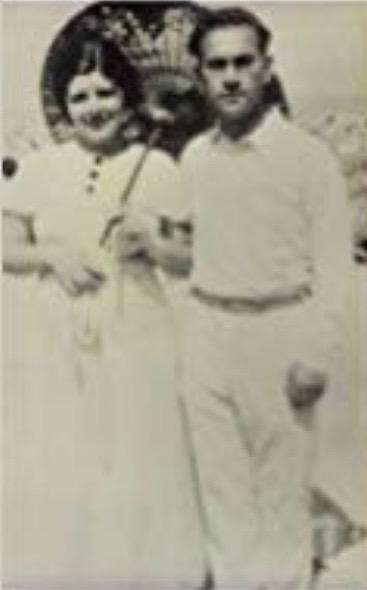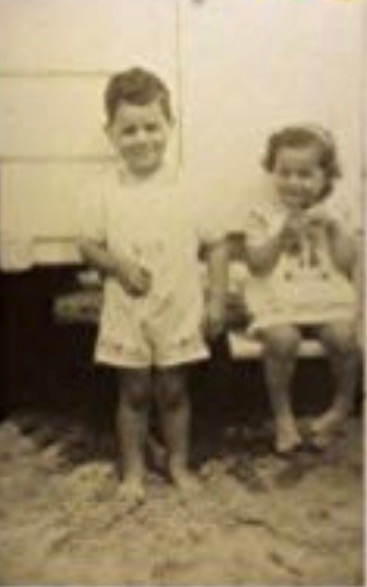Borensztejn
Visa Recipients
- BORENSZTEJN, Abraham Luzer P
Age 34 - BORENSZTEJN, Henry
Age around 36 - BORENSZTEJN, Mina née GINSBURG P
Age 28 - BORENSZTEJN, Paul P T
Age 5 - BORENSZTEJN, Viviane P
Age 3
About the Family
The BORENSZTEJN (or BORNSTEIN) family received visas from Aristides de Sousa Mendes in France in June of 1940.
Henry BORENSZTEJN traveled by boat from Bordeaux to the United Kingdom and did not use his Portuguese visa.
The rest of the family crossed into Portugal, where they resided in Figueira da Foz. From Portugal they went to British Guyana in August of 1940, where they lived out the war. After the war they traveled to the United States, where they settled.
- Photos
- Testimonial
Testimonial of Paul BORNSTEIN
Excerpt from his book, Exodus from Belgium ini 1940: A Family's Escape to South America and Final Emigration to the United States, 2012
Was it a thunderstorm or the bombing of the port of Antwerp by the Luftwaffe? I was less than six years old and was awakened by the noise and flashing lights caused by exploding bombs. My father calmed me by drawing the blinds shut and blamed the noise and lights on a thunderstorm. In reality, Germany had attacked Belgium without prior warning.... The next two days, a weekend, were spent making difficult decisions as to which items to stow in our De Soto Sedan, and which to leave behind. Our party consisted of my parents, my four-year-old sister, Viviane, and me and my bachelor uncle, Henry....
After loading as much luggage as possible into our car, and with my uncle standing on the running board of the De Soto, we joined an increasing stream of both civilian and French and British military vehicles headed in the direction of Dunkirk. Progress was slow, due both to the volume of the traffic and the tendency of military vehicles to run civilian vehicles off the road if they hindered their progress. An even more serious problem was the presence of German fighter planes that strafed vehicles, regardless of whether they were civilian or military, in order to clog the roads and hinder access of British and French military personnel to ships waiting in Dunkirk to transport them to British ports. On several occasions, to avoid being strafed, my father, upon hearing the approach of the planes, left the main road and drove to a grassy patch, where he covered the car with a green tarpaulin to disguise its presence. Nevertheless, at some point, the decision was made to abandon our attempt to reach Dunkirk and to drive instead to the south of France, because it seemed unlikely at the time that the German invasion would reach there....
Presumably, Bordeaux was chosen as an alternative destination because it had a substantial port that might have nautical traffic to England.... Accordingly, we rented rooms on a farm in the nearby town of Cognac. My most vivid memory of the time we spent at the farm resulted from the task I was given, namely, to collect the eggs laid by chickens that wandered around the grounds. My father and uncle traveled frequently to Bordeaux, for news of a ship destined to travel to England. After some weeks, one materialized, but we were informed, to our dismay, that passage was limited to passengers with a British passport. My uncle, together with other members of the family including my father, had left Belgium for England during World War I. Toward the end of the war, Uncle Henry had joined the British army and had thereby received a British passport. Because there seemed to be no possibility for the rest of us to obtain passage to England, we left Bordeaux and made our way to the French-Spanish border.




